Serendipity Arts Festival is a multidisciplinary Festival that brings together performative, visual, and culinary practices from India and beyond, in ways unseen before. Spread across various venues in Panaji, Goa, the Festival serves as a platform for eminent and emerging artists to showcase their work and collaborate.
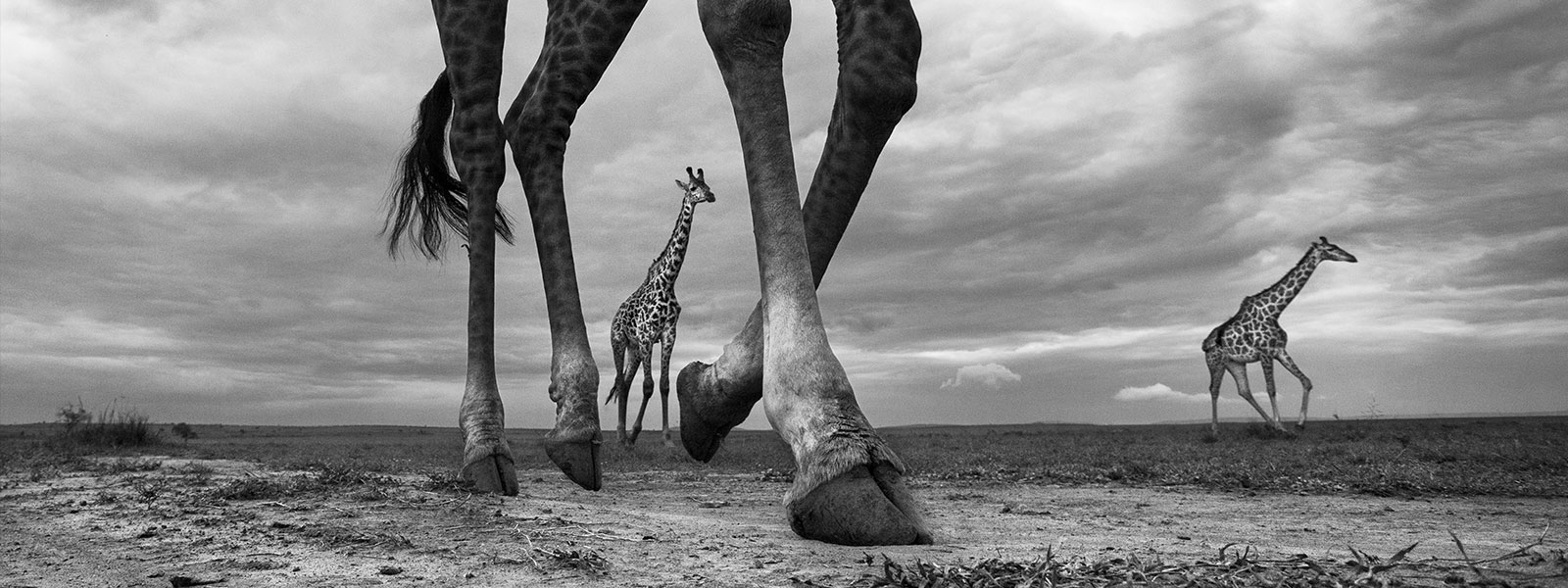
Photography
Curated by Rahaab Allana and
Ravi Agarwal
This year’s programming examines ideas and practices within photography, addressing traditions of vernacular and lesser knows histories of photography, while simultaneously engaging with archives, studios and a curated moving image section, as well as specifically commissioned works. The other aspect of the discipline’s curation examines and questions the narrative and ‘truth’ behind the photograph as document, through an exhibition using indoor and outdoor spaces, and a workshop.
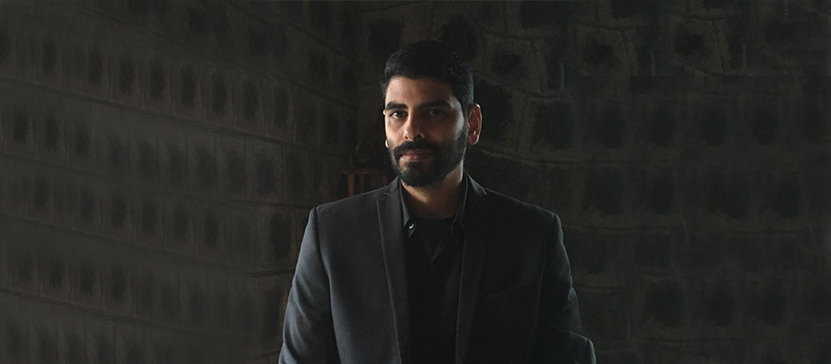
Rahaab Allana is the curator/publisher of the Alkazi Foundation for the Arts in New Delhi, and a Fellow of the Royal Asiatic Society in London. He has curated several exhibits, edited and contributed to national and international publications, and worked closely in museums and galleries such as The Brunei Gallery (London), Rencontres d’Arles (Espace Van Gogh), and the Rubin Museum (NY), among others. He also teaches an annual diploma course on the history of photography at Bhau Daji Lad Museum in Mumbai. Rahaab is the Founding Editor of PIX, one of India’s first theme-based photography quarterlies, and is the author of Filmi Jagat: Shared Universe of Early Hindi Cinema.
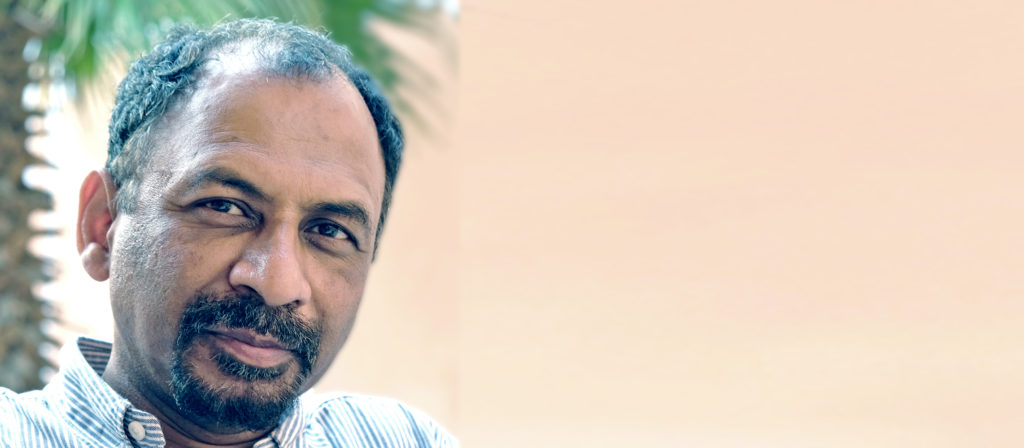
Ravi Agarwal has an inter-disciplinary practice as an artist, photographer, environmental campaigner, writer and curator. His work explores key contemporary questions around ecology, society, urban space and capital. He works with photographs, video, installations, and public art and has been shown widely in shows, including at the Kochi Biennial (2016), Sharjah Biennial (2013) and Documenta XI (2002). He co-curated the Yamuna-Elbe, Indo German twin city public art and ecology twin city project in 2011 and Embrace our Rivers, Public Art Ecology project in Chennai (2018).
Agarwal is also the founder of the Indian environmental NGO Toxics Link which has pioneered work in waste and chemicals in India. He serves on several high level policy committees, and writes extensively on sustainability issues in journals and books. He was awarded the UN Special Recognition Award for Chemical Safety in 2008 and the Ashoka Fellowship for social entrepreneurship in 1997.
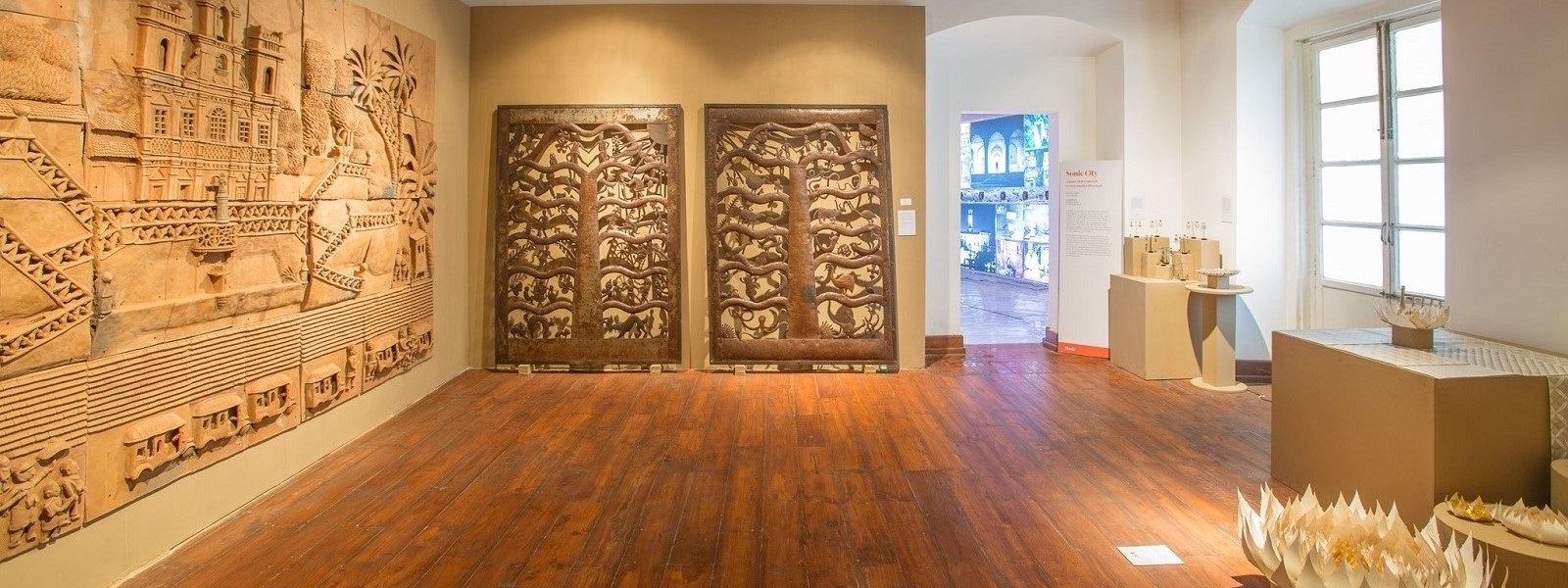
Craft
Curated by Dr. Annapurna Garimella and
Rashmi Varma
The Craft projects focus on local Goan crafts that will be displayed in a specially designed architectural structure, in continuation of one of last year’s projects. The exploration of everyday objects brings to light their histories, and the status of Indian handicraft in the present time, encouraging an equal collaboration between designers and craftspeople.

Annapurna Garimella is a Delhi-based designer and an art historian. Her research focuses on late medieval Indic architecture and the history and practices of vernacular art forms in India after Independence. She heads Jackfruit Research and Design, an organization with a specialized portfolio of design, research and curatorial. She is also the Founding and Managing Trustee of Art, Resources and Teaching Trust, a not-for-profit organization that runs a public art library, conducts independent research projects and does teaching and advisement for college and university students and the general public. Her most recent curatorial projects include Vernacular, in the Contemporary (Devi Art Foundation, New Delhi) and Faith: Manu Parekh in Benaras 1980-2012 (Art Alive, New Delhi) and Drawing 2014 (Gallery Espace, New Delhi). Her most recent book is about a collaboration between a Rajasthani miniature painter and expatriate American photographer and is titled The Artful Life of R. Vijay (Serindia, 2016).
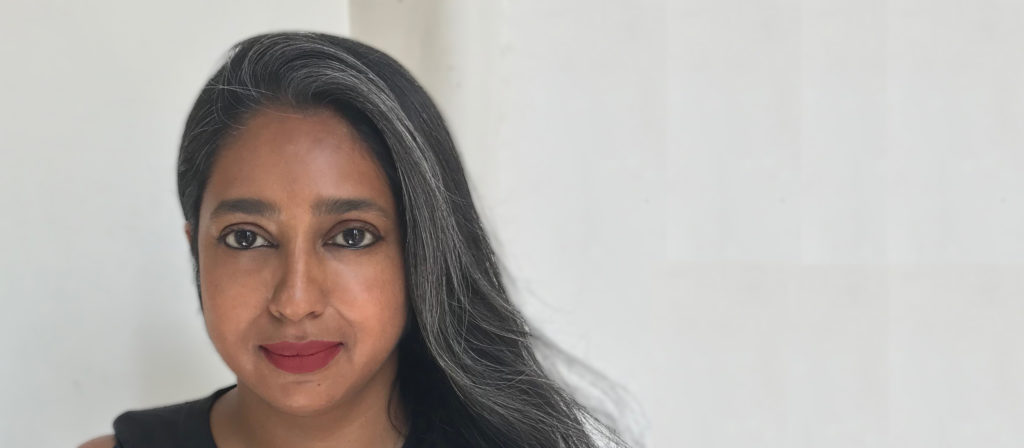
From an early start in interior design, art and architecture, Rashmi Varma went on to work in fashion, film & theatre. A profound love and respect for crafts led her to launch a women’s wear label Rashmi Varma in 2013, with garments that celebrate design, functionality and the rich imperfections of the human hand for the 21st century.
Prior to moving to India to start her clothing line, she worked extensively as a costume designer in films ranging from indie to big budget Hollywood productions. Her designs, performances and installations have been exhibited at the Victoria and Albert Museum, Museum of Canadian Contemporary Art and the Textile Museum of Canada. Her book, Sār: The Essence of Indian Design, co-authored with Swapnaa Tamhane, was published by Phaidon Press in 2016. Sār distils Indian design aesthetics into 200 living objects, both machine made and handcrafted throughout India. Rashmi Varma was born in Montreal, Canada and is now based in New Delhi, India.
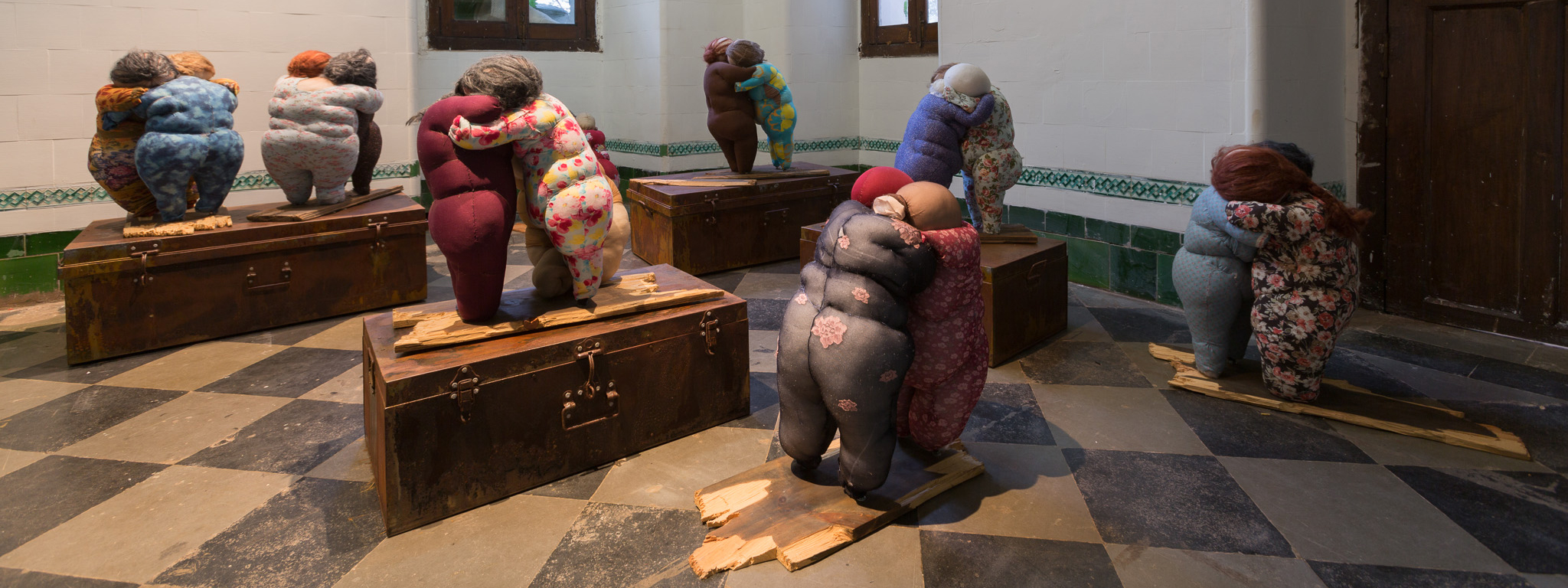
Visual Arts
Curated by Ranjit Hoskote and
Subodh Gupta
The programming of Visual Arts this year offers a wide spectrum of projects. In continuation from last year, there will be an emphasis on emerging artists from the subcontinent, as well as performance art, street art and a film programme. We put a spotlight on collections and archives in innovative ways, and bring to Goa an important exhibition exploring ideas of ‘the other’ through a group show of international and Indian artists. In addition, the role of artist residencies in the contemporary art scene will be examined.
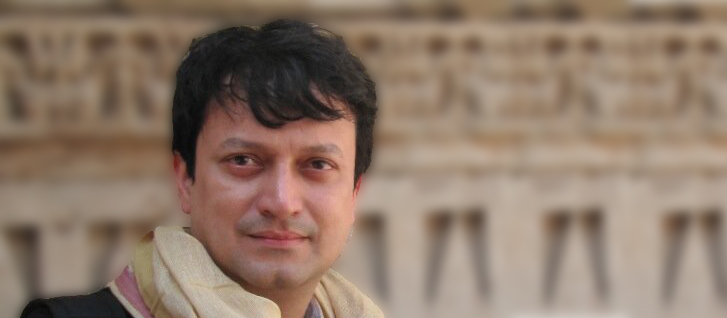
Ranjit Hoskote has been acclaimed as a seminal contributor to Indian art criticism, and is also a leading Anglophone Indian poet. Hoskote was curator of India’s first-ever national pavilion at the Venice Biennale (2011). He co-curated the 7th Gwangju Biennale with Okwui Enwezor and Hyunjin Kim (2008). Since 1993, he has curated numerous exhibitions since 1993, including two monographic surveys of Atul Dodiya (Bombay: Labyrinth/ Laboratory, Japan Foundation, Tokyo, 2001; and Experiments with Truth: Atul Dodiya, Works 1981-2013, National Gallery of Modern Art/ NGMA, New Delhi, 2013), a lifetime retrospective of Jehangir Sabavala (NGMA, Bombay, 2005 and NGMA, New Delhi, 2006), and Unpacking the Studio: Celebrating the Jehangir Sabavala Bequest (CSMVS/ The Museum, Bombay, 2015). He was co-convenor, with Maria Hlavajova, Kathrin Rhomberg and Boris Groys, of the exhibition-conference platform Documents, Constellations, Prospects (Haus der Kulturen der Welt, Berlin, 2013).
Hoskote has been a Fellow of the International Writing Program (IWP), University of Iowa; writer-in-residence at Villa Waldberta, Munich; writer-in-residence at the Polish Institute, Berlin; and researcher-in-residence at BAK (basis voor actuele kunst), Utrecht. He was a member of the jury for the 56th Venice Biennale (2015). He is a member of the international advisory board of the Haus der Kulturen der Welt, Berlin, and of the Bergen Assembly, Norway; he also serves on the advisory board of the Jehangir Nicholson Arts Foundation. In 2018, he was appointed as Academic Consultant to the CSMVS (formerly the Prince of Wales Museum), Bombay.
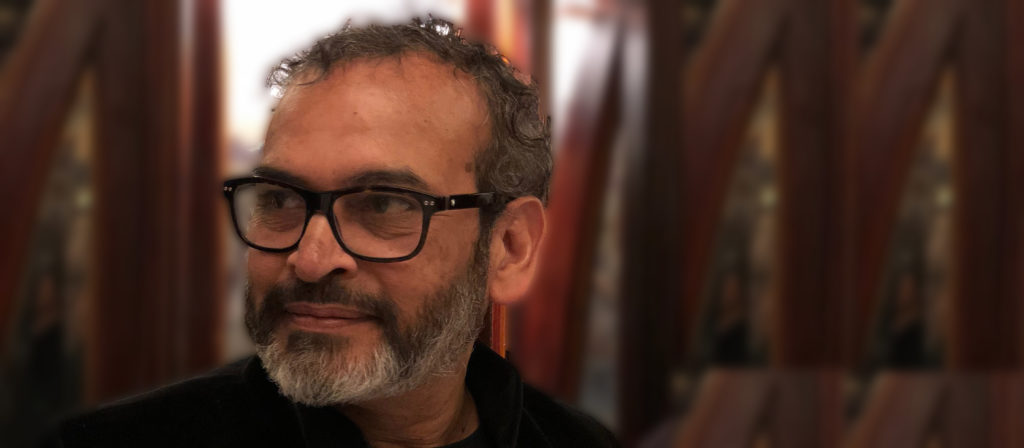
Subodh Gupta’s sculpture incorporates everyday objects ubiquitous throughout India- steel tiffin boxes, thalis, bicycles, milk pails. His works investigate the transformational power of the everyday in terms of these mundane items, reflecting on the transformation of his homeland. Gupta has long explored the effects of cultural translation and dislocation through his work, demonstrating art’s ability to transcend cultural and economic boundaries. His ideas have taken shape in a variety of different media, from film, video and performance to steel, bronze, marble, and paint, which Gupta employs for both their aesthetic properties and as conceptual signifiers. In recent years Gupta has shifted his attention from mass produced stainless steel objects to found objects. He is fascinated by the traces left on these objects by their previous owners, turning them from inanimate utensils into items charged with stories of lives lived, visualised by scratches and dents. Before his education as a visual artist, Gupta, who is passionate about film, was a street theater actor. The artist’s change of residence from his native village to a major urban center is in a way an allegory of today’s India. The growing middle class that migrated from villages to large cities is eagerly clearing the path for change and the dominance of global capitalist culture. Gupta is interested in what inevitably disappears in the process of such change.
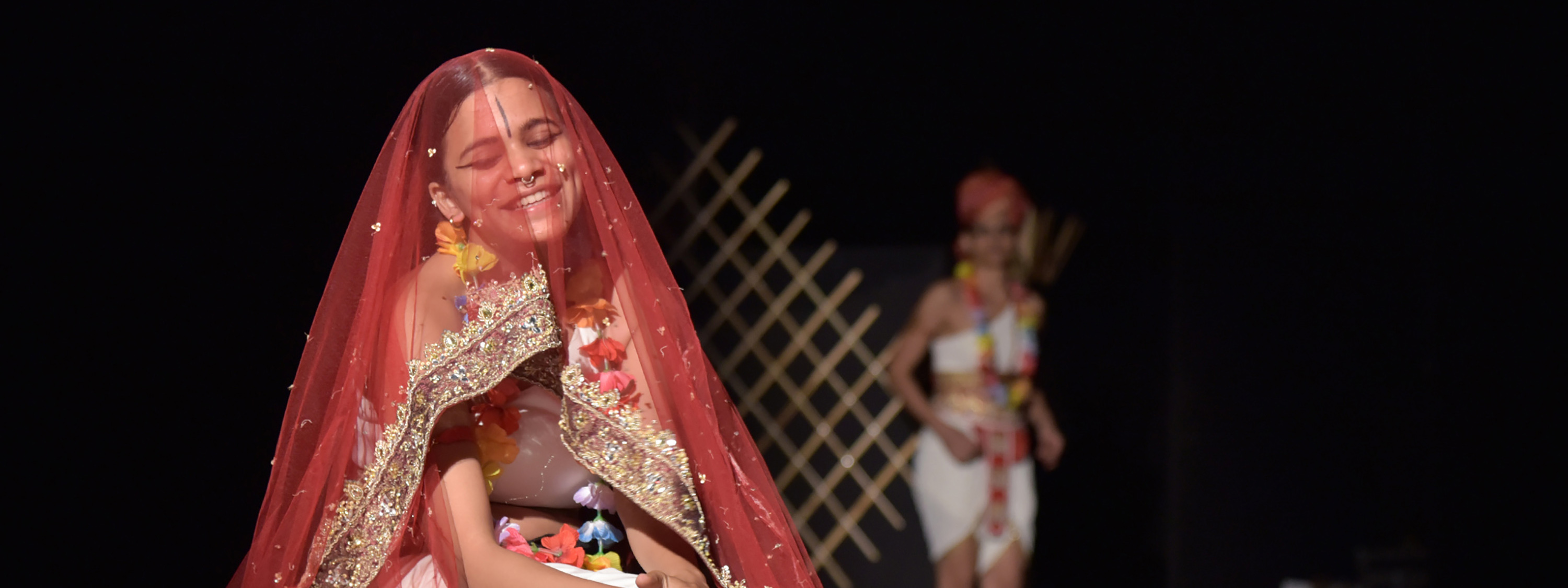
Theatre
Curated by Atul Kumar and Arundhati Nag
This year, the Theatre programming pushes beyond defined boundaries. Moving away from the proscenium, the performances are set to explore fresh avenues – making use of alternate spaces, showcasing traditional forms with a contemporary twist, introducing young children to the importance of theatre, and highlighting the creative presence of marginal communities.
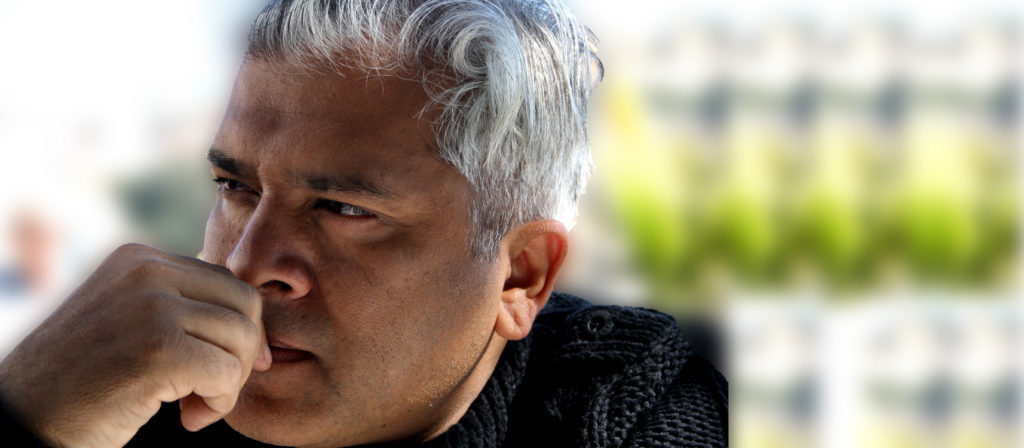
Atul Kumar is The Company Theatre’s Founder Member and Artistic Director. An acclaimed actor and director with more than 25 years of stage experience, Atul has dabbled with different languages and forms of theatre and has showcased his work all over India and abroad. His basic performance training was in the traditional Indian Dance and Martial Art forms of Kathakali and Kalaripayattu in Kerala. He also learnt from his various travels abroad where he got to work with Compagnie Philippe Genty in Paris- France & Sacramento Theatre Company in California- USA. Atul was recently invited by Shakespeare’s Globe Theatre in the UK to direct for their International Theatre Festival. Amongst many grants he has been awarded French Cultural Fellowship, Charles Wallace Scholarship and Chevening Fellowship to develop his theatre pursuits in Europe.
He has served as a steering committee member of the International Network for Cultural Diversity, Canada and often participates in conferences, seminars and forums that are concerned with larger issues of art and culture. Atul also occasionally works in film and television.
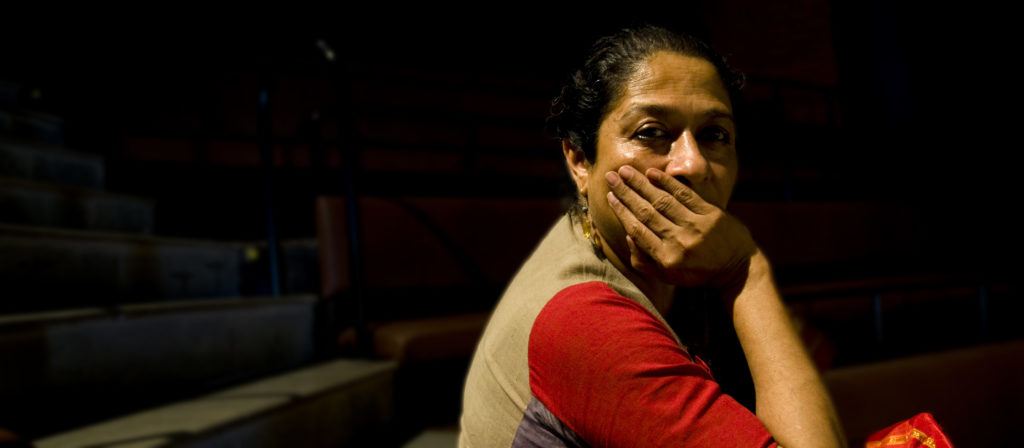
Arundhati Nag is Creative Director of Ranga Shankara. Ranga Shankara (www.rangashankara.org) a theatre in Bangalore, dedicated solely to dramatics. Only the second such space in India (after Prithvi Theatre), Ranga Shankara has, with its show-a-day policy, changed the way theatre is viewed and performed in Bangalore. As its Creative Director, Arundhati oversees every aspect of Ranga Shankara from Programming and Operations. The possibilities that Ranga Shankara has opened up are endless and ever-lasting. Arundhati has also pioneered a unique Theatre For Children programme called AHA! that makes theatre a part of a child’s life.
She is Managing Trustee of Sanket Trust , almost single-handedly, raised the necessary funds to build Ranga Shankara, perhaps the only project of its nature in the country today, built entirely on donations and run with huge subsidies for the performing and audience communities.
For over 40 years, Arundhati has also been an actor. She has performed over 1000 shows in five languages in both amateur and professional theatre, winning several accolades along the way. From Shakespeare to Karnad, Ibsen to Beckett and Tendulkar, Arundhati has performed in numerous genres. As a choosy film actor, she has essayed award winning roles in several films for India’s best directors.
Arundhati was David Lean’s Assistant Director for “A Passage to India”. She also assisted and wrote Hindi dialogues for the legendary TV Serial “Malgudi Days”, based on R K Narayan’s novel, directed by Shankar Nag. She serves on the advisory boards of several national level institutions.
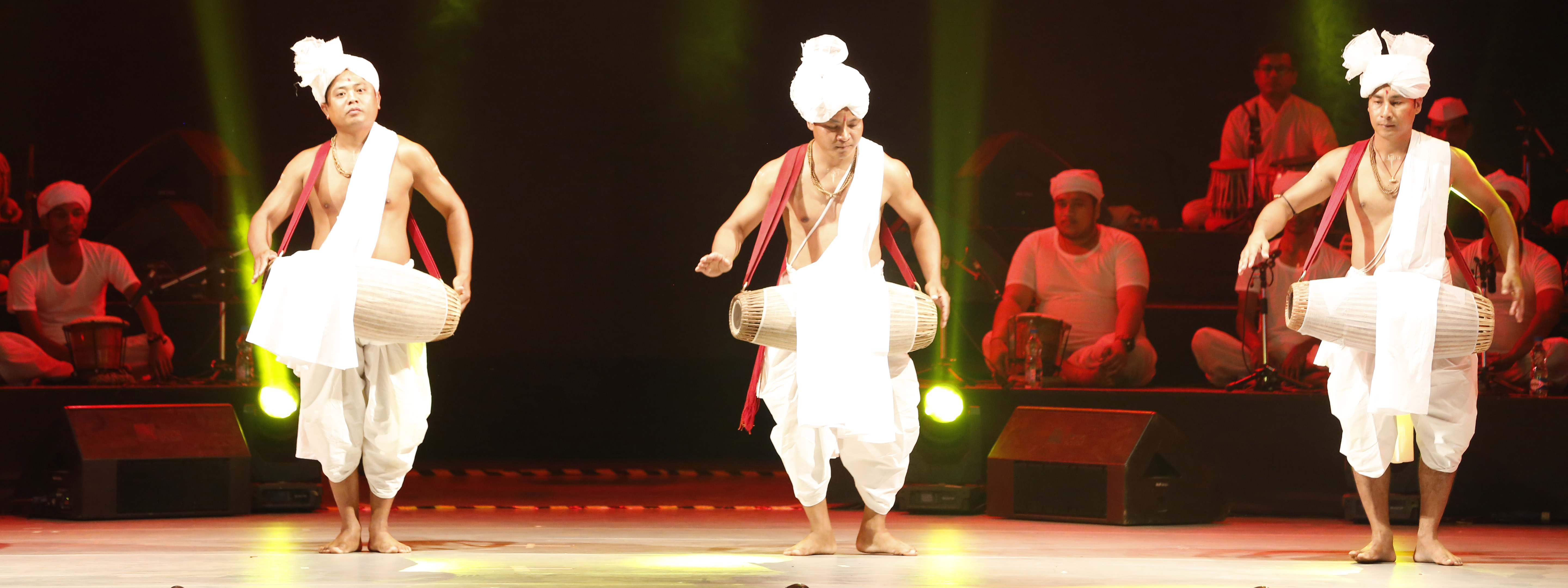
Music
Curated by Aneesh Pradhan and
Sneha Khanwalkar
The Music programme explores the gamut of traditions in India, as well as the sources of inspiration. The stage will also be set for international artists, providing the audience an opportunity to experience musicals, along with retro, jazz, and electro funk music. In addition, there will a unique sound experience that showcases the cross currents between sound, visuals, space and technology.
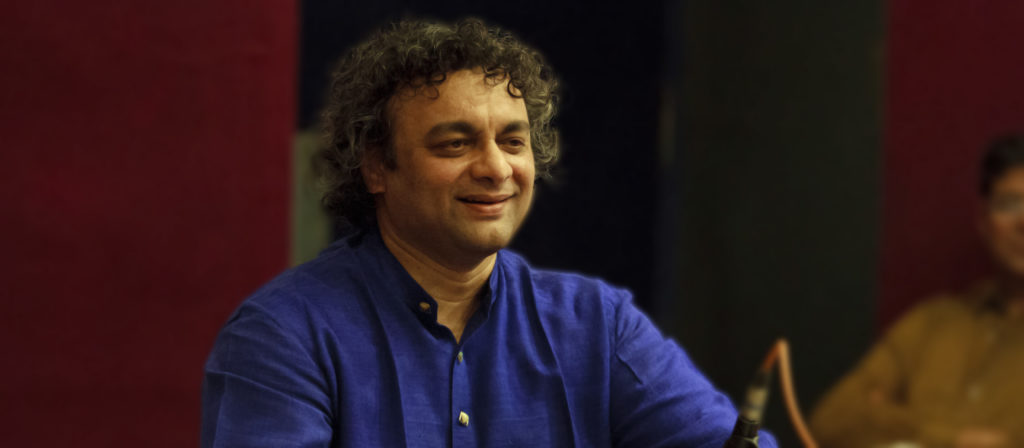
One of India’s leading tabla players, Aneesh Pradhan is a disciple of the illustrious tabla maestro Nikhil Ghosh from whom he inherited a rich and varied repertoire of traditional tabla solo compositions from the Delhi, Ajrada, Lucknow, Farrukhabad and Punjab gharanas. Greatly appreciated by both the cognoscenti and the lay listener as a soloist and accompanist, Aneesh Pradhan is the recipient of several awards such as the Aditya Birla Kala Kiran Award (2000), the Natyadarpan Award for ‘Best Background Score’ (1998) for music direction to the Marathi play ‘Tumbara’ directed by Sunil Shanbag, the Vasantotsav Award (2012) instituted in memory of the eminent vocalist Dr. Vasantrao Deshpande, and the Saath Sangat Kalakar Award (2013) instituted in memory of G.L.Samant by the Gandharva Mahavidyalaya, Pune.
A popular performer at most prestigious concerts and festivals in the country, Aneesh Pradhan has also traveled widely and performed overseas at major events. He has recorded prolifically for national and international record labels accompanying a host of vocalists and instrumentalists. Apart from his work with art music, Aneesh Pradhan is also a frequent participant in cross-cultural musical collaborations both in the capacity of performer and composer. He is keen to push the envelope in experimenting with sound and music through his composition for film, television, theatre and dance projects. Aneesh Pradhan has been awarded the Indian Council for Cultural Relations Chair in Indian Studies at the Sir Zelman Cowen School of Music, Monash University. He has been a keen researcher of trends in performance, music education and patronage that unfolded in the late nineteenth and early twentieth century, a period that continues to fascinate him for its direct relation to and reason for the musical situation he finds himself in. Aneesh is the Director of Underscore Records Pvt. Ltd, an independent online record label that he established with vocalist Shubha Mudgal. He also co-curates with Shubha Mudgal, an international music festival called Baajaa Gaajaa: Music from 21st Century India.
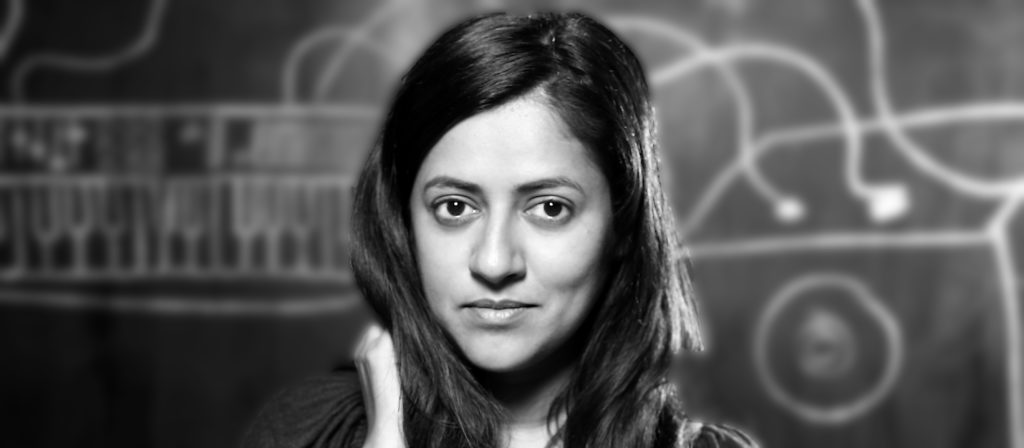
Sneha Khanwalkar has played a significant role in changing perceptions of Hindi film music by digitally mixing disparate noises, sounds of local instruments and voices to produce a track. Unlike most music directors, who are happy sitting in their studios, she is someone who thrives when composing music outside the studio.
Born and brought up in Indore, Khanwalkar was taught music as a child, as her mother’s family belonged to the Gwalior gharana of Hindustani classical music. Sneha conceptualised and hosted the MTV min-seriers, Sound Trippin, travelling the length of India and collecting local ambient sounds and recording with everyday and local musicians, and creating a final piece of music.
With projects like Gangs of Wasseypur, Khoobsurat, Oye Lucky! Lucky Oye!, Love Sex aur Dhoka in her repertoire, Khanwalkar brings with her a mix of eccentric as well as upbeat music. Sneha won Filmfare’s R.D Burman Award for the best music director for Love Sex aur Dhoka in 2011 and was nominated in Best Music Director category at the 58th Filmfare Awards for Gangs of Wasseypur Part 1 & Part 2. Most recently, Sneha has composed the music for the internationally acclaimed film, Manto.
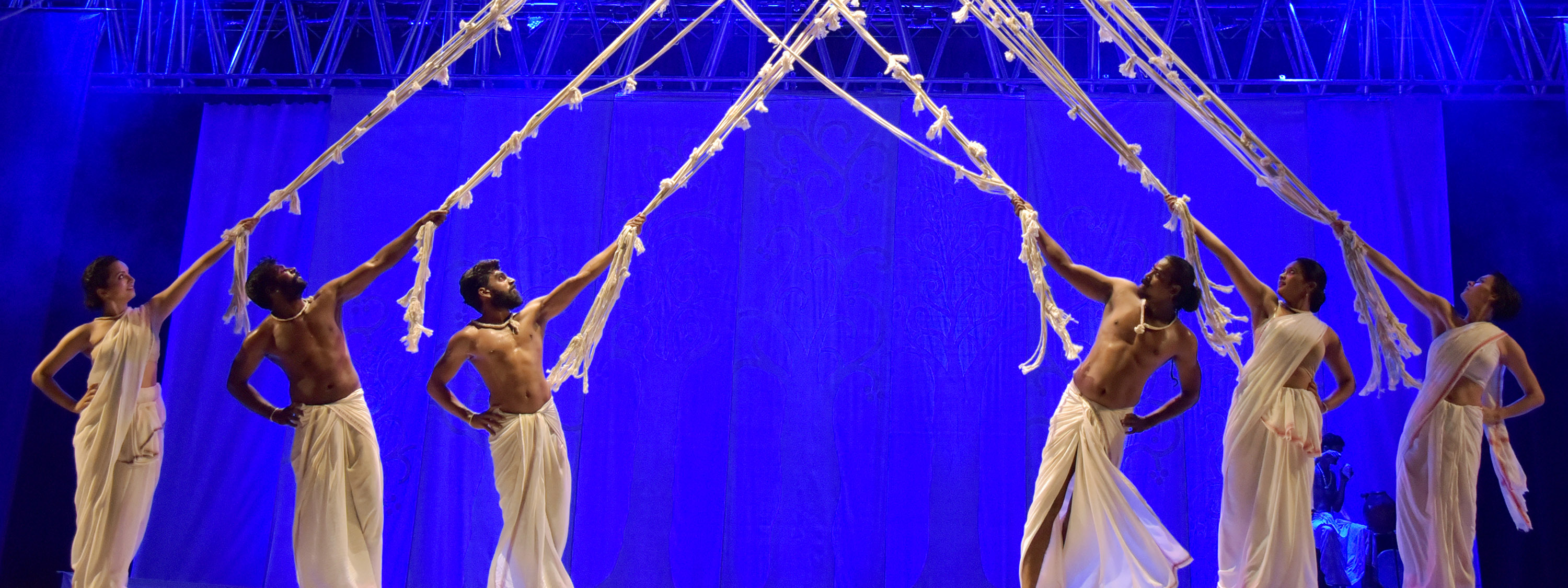
Dance
Curated by Leela Samson and
Mayuri Upadhya
The curation of the Dance programme this year engages almost all forms of traditional Indian dance, including folk; at their core, these projects are interdisciplinary in nature, resulting in a perfect balance between music, dance and drama. Many of these projects venture into alternate spaces, where the emphasis is more on the body in relation to space and technology.
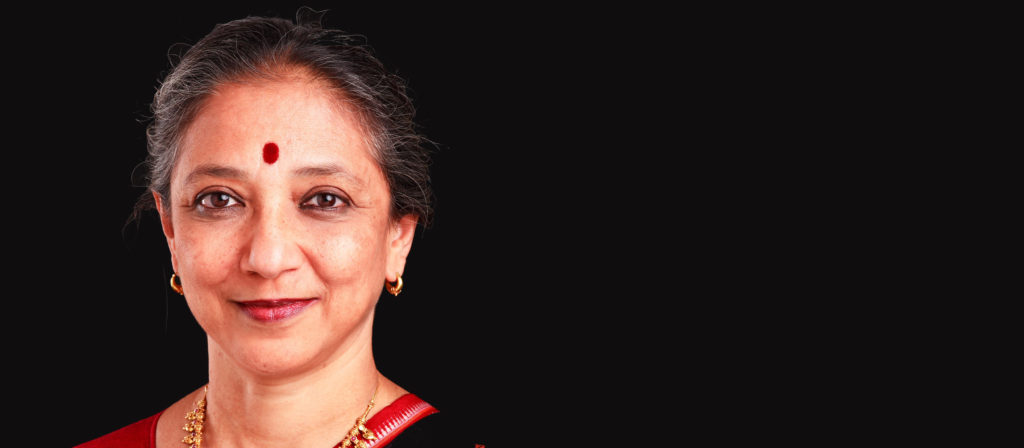
Leela Samson received the impulses for her growth as a dancer from Kalakshetra, Chennai, where she was a student initially from 1961 to 1967, while also studying in the Besant Theosophical High School. From 1975 to 2005 she taught at the Sriram Bharatiya Kala Kendra and privately in Delhi, and choreographed a body of work called ‘Spanda’ known for its innovations in Bharatanatyam. It is now twenty years since its inception and Spanda continues to enthrall audiences with its innovativeness in tradition. Leela has travelled extensively and performed at leading festivals of dance in India and abroad.
Leela was Director, Kalakshetra from 2005 to 2012. She brought to the institute an integrity and dynamism in teaching and performance, and a widening of the academic scope of the dancer graduating from its portals, besides initiating several publications, films and documentation of the founder’s dance dramas. Leela has also written a few books: Rhythm in Joy (Lustre Press, 1987), on the classical dance forms of India, Rukmini Devi – a life (Penguin Viking, 2010), on the life of the legendary founder of Kalakshetra. She is the recipient of the Sanskriti Award in 1982, the Padmashri Award in 1990, the Nritya Choodamani Award in 1997, the Sangeet Natak Akademi Award in 2000 and the Natya Kala Acharya Award from the Music Academy, Chennai in 2015. From August 2010 to September 2014 she served as Chairperson, Sangeet Natak Akademi, New Delhi.From mid 2011 to early 2015, she served as Chairperson, Central Board of Film Certification.
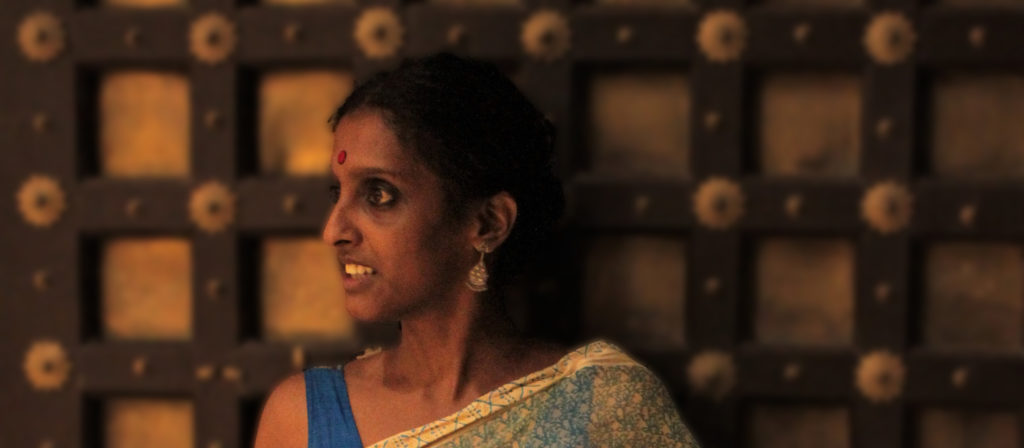
Ranjana Dave is a dance practitioner and arts writer. Her work in dance spans performance, writing, archiving, curation and pedagogy. She is the co-founder of Dance Dialogues, a Mumbai-based initiative that connects artists to provocative and diverse ideas, individuals, and institutions. Her writing has appeared in the Hindu, Scroll, Time Out, NCPA Onstage, Asian Age, Indian Express, and Tanz, among other publications. She curated and annotated an extensive online archive of dance video at Pad.ma (Public Access Digital Media Archive). Ranjana is programmes director at the Gati Dance Forum in New Delhi, developing, curating and documenting various projects for the organisation. She co-curated and curated, respectively, two practice-oriented conferences for the IGNITE! Festival of Contemporary Dance in 2015 and 2016. She worked on curriculum design for a new MA in Dance Practice developed by Gati, which will be the first programme of its kind in South Asia to be implemented within the university system.
Trained in Odissi, Ranjana performs and teaches the form actively. She also teaches courses on dance writing, history and reflexive practice. She has taught short courses and semester-length modules at KRVIA, Mumbai, Ashoka University, Sonepat, and at Gati Dance Forum.
Ranjana was an Arthink South Asia Fellow in 2013. Her essay, Liminal Spaces in Tradition: Odissi as a Continually Evolving Form, features in Tilt Pause Shift: Dance Ecologies in India, published by Tulika Books, 2016. In 2017, her essay, Significant Issues for Contemporary Dancers in India, appeared in Marg’s special issue on contemporary dance.
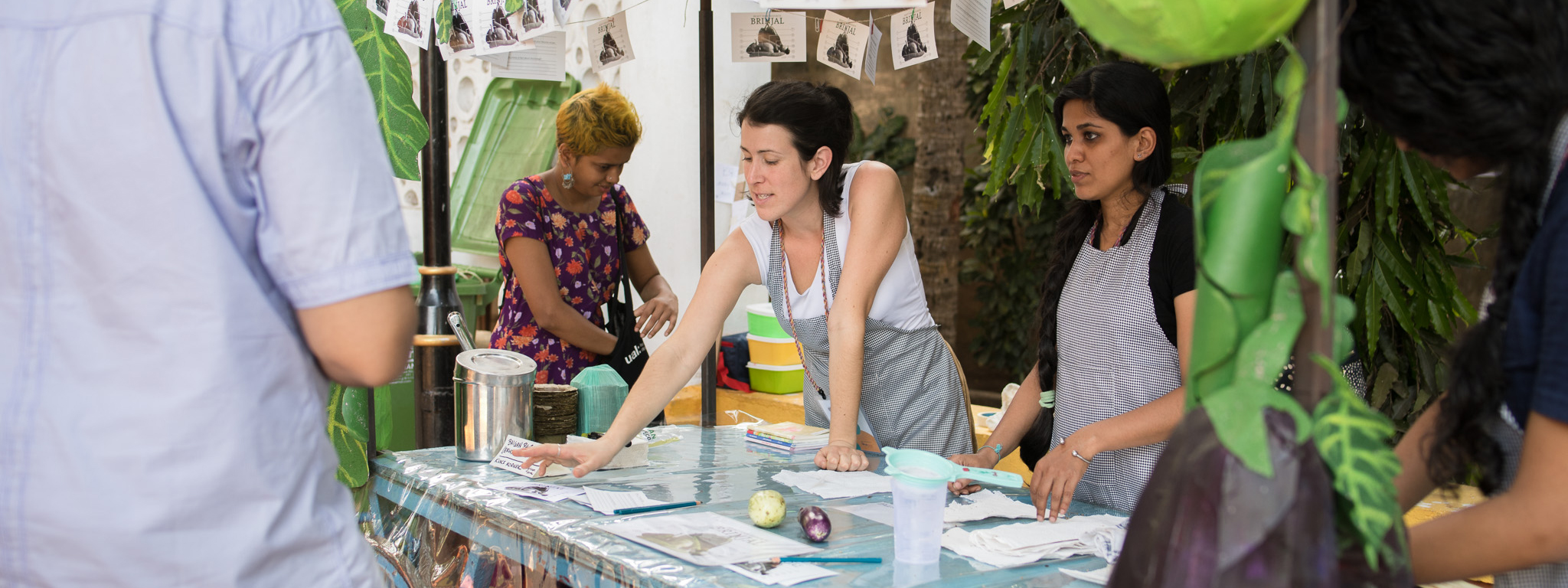
Culinary Arts
Curated by Odette Mascarenhas and
Rahul Akerkar
The Festival moves away from the idea of food being a means to sustenance, and discovers the different possibilities of food as art/performance, innovation and delight. The Festival provides a unique food experience through curated workshops, with focus on local produce and regional flavors; recreating a Goan marketplace and its unique wares, and celebrating the integral role of spice in Indian cuisine as well as unusual but intriguing pairings in food and drink.
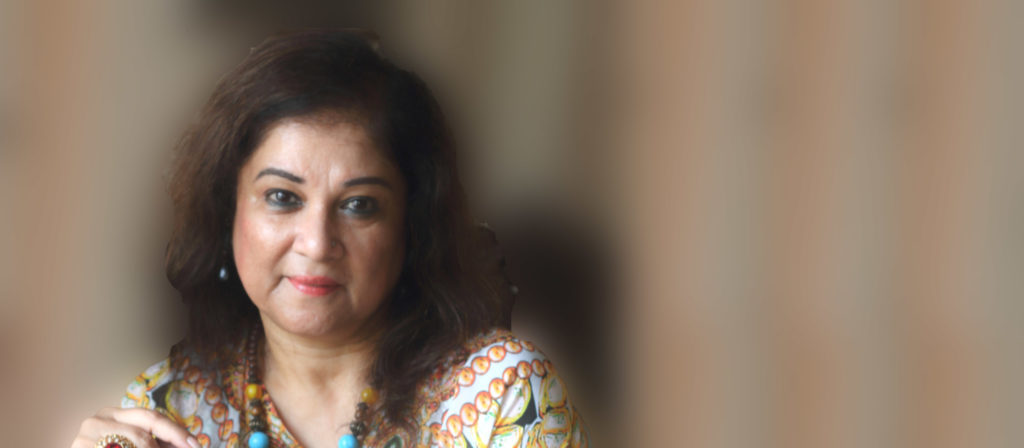
Odette Mascarenhas is a food historian and critic, author and television host. Her stint as the food & beverage manager at the Taj Group of Hotels has helped her define a keen palate towards the nuances of different ingredients used in food preparations.
Her passion for the written word is the reason she has nine books to her credit. Odette’s first book, Masci: The Man Behind the Legend, which she wrote on her father-in-law, Miguel Arcanjo Mascarenhas, who was the executive chef at Taj Mahal Mumbai in 1939, won a Special Jury Award at the Gourmand World Cookbook Awards 2008.
Her ninth book, The Culinary Heritage of Goa, brings alive the kitchen tradition of Goan households all around the state. She has followed the culinary journey of Goa down the ages, from the times of the Chalukyas, Kadambas, the Vijaynagar Empire, the Muslim Bahamani Sultanate, the Portuguese rulers, to the present times and how it is all reflected in the evolution of Goan Cuisine. The book has won the Best in the World for Historical Recipes and Best Self Published Book in India at the Gourmand World Cookbooks 2015 awards. She is the co-founder of the Goan Culinary Club – a non-profit venture which strives to preserve the authenticity of Goan cuisine and researches lost recipes of the past with local chefs and restaurateurs.

Rahul Akerkar is all about mixing his passion for life, food, and science, and has managed to blend these key ingredients into a career as one of Mumbai’s leading restaurant moguls. Regarded as the pioneer of the independent chef- restaurateur-run eateries in Mumbai, he has shifted the focus on fine dining away from the five-star hotel domain. Akerkar cofounded deGustibus Hospitality with his wife, Malini, in 1996. They operate six restaurants in Mumbai, including the much acclaimed Indigo, a bar, an event/banqueting space, and a catering business.
